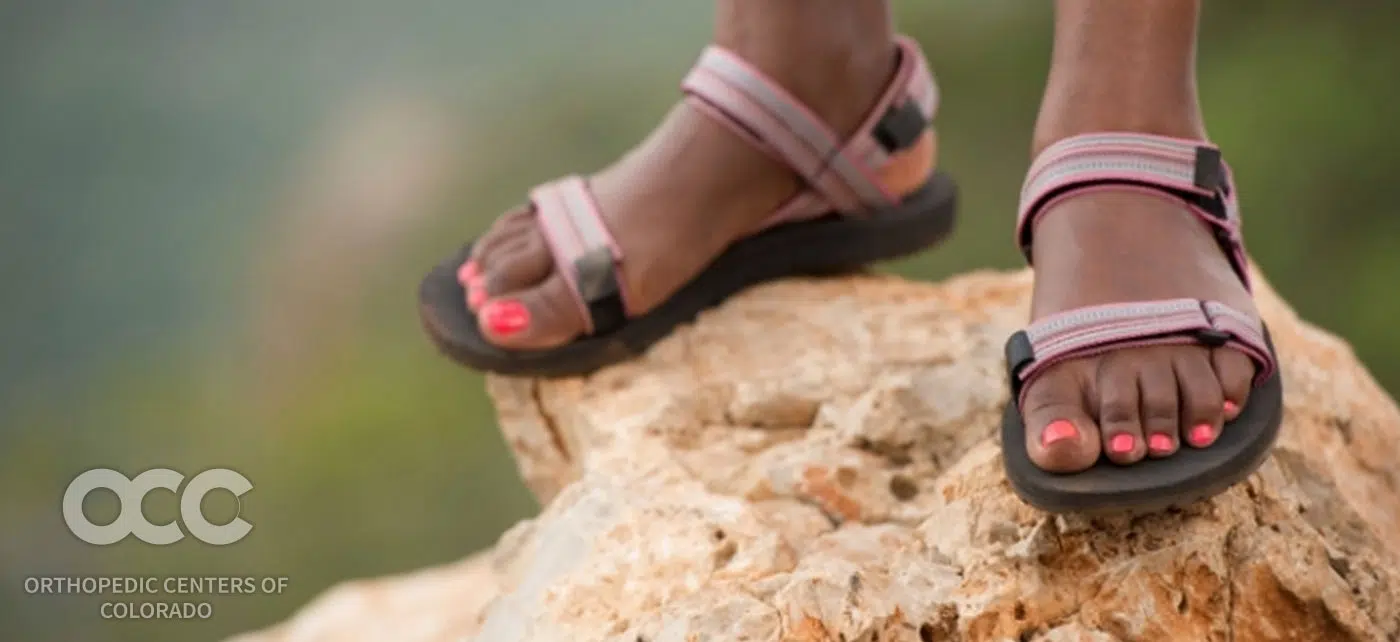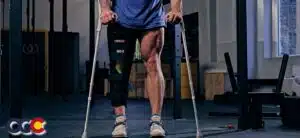It’s sandal season! If you have a bunion, you may relish the relief of not squeezing your foot into tight-fitting shoes but wearing sandals alone doesn’t qualify as bunion treatment; you may need a bunionectomy.
With summer in full swing, our feet are taking center stage. They often get more use, and more exposure as outdoor activities keep us on our feet. Whether it’s long lines at the amusement park or the zoo or time on your feet at that concert you’ve been waiting a year to see, excess time on your feet can cause or aggravate bunions.
A bunion, which protrudes as a bump on the inside of the foot at the base of your big toe, can have several causes. These include inherited foot shape or structure, injury, and spending extended time on your feet (especially without proper footwear).
When the big toe joint turns inward toward the second toe and forces the base of the toe joint out of alignment, and away from the base of the foot, it creates a painful bulge – a bunion – that often rubs in shoes and causes other pain and instability. That’s when some people even get to the point where it’s too painful to put their foot into a shoe.
Bunions are very common, and in fact, one in three people develop bunions. If a bunion is slowing you down, or you’re dreading the idea of actual shoes in the fall, there are several bunion treatment options to help get you back on your game.
Bunion Treatment Options
Depending on the severity, some bunions can be treated with non-surgical methods that relieve the pain, such as more supportive footwear, footpads, and inserts that provide more space for your toes while spreading the body’s weight more evenly. Ice and anti-inflammatory medication can also offer swelling and pain relief following long periods of time on your feet. Cortisone shots may also be used to treat prolonged pain. These solutions do not, however, treat the misaligned joint itself.
Given the tendency of bunions to worsen over time, surgical treatments like a bunionectomy play a key role in effective treatment. Effective bunion surgery options include bone realignment, bone removal, and bone fusion. Each of these surgical bunion treatments can offer relief, and a qualified podiatric surgeon can help each patient identify the best option for their circumstances.
Early diagnosis and treatment are both important. With a proper evaluation aided by foot imagery, your physician can accurately assess your condition to inform the best treatment plan. Your doctor can counsel you on the individual benefits, risks and procedure details that are right for you.
What Does Bunion Surgery Recovery Look Like?
Recovery timelines are as individual as each patient. Some bunion patients begin walking in the days immediately following their surgeries while others require recovery periods that are weeks-long or multiple months. The extent of the surgical procedure plays a major role in recovery timelines. Other core drivers that shape recovery include patient health, fitness, age and activity level. Regardless of these factors, wearing comfortable, supportive footwear is an essential part of the recovery plan and also plays a key role in providing long-term relief.
What Can I Expect from a Bunionectomy?
Patients that seek a thorough evaluation and treatment from a foot and ankle specialist typically experience complete recoveries that provide pain relief and a return to the previous activity levels.
Summer is full of countless activities that keep you on our feet, and bunions don’t have to slow you down. They do, however, require your attention. The specialists at Advanced Orthopedics are here to resolve your bunion pain and keep you moving.










